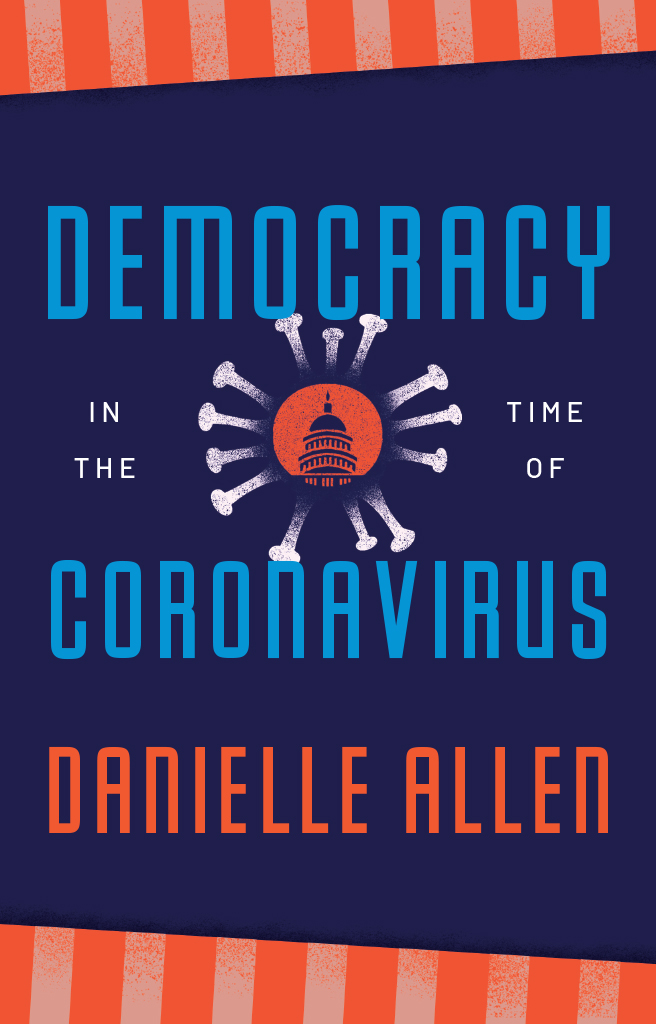
Democracy in the Time of Coronavirus
THE RANDY L. AND MELVIN R. BERLIN FAMILY LECTURES
Democracy in the Time of Coronavirus
Danielle Allen
The University of Chicago Press
Chicago and London
The University of Chicago Press gratefully acknowledges the generous support of the Randy L. and Melvin R. Berlin Family Endowment toward the publication of this book.
The University of Chicago Press, Chicago 60637
The University of Chicago Press, Ltd., London
2022 by Democratic Knowledge, LLC
All rights reserved. No part of this book may be used or reproduced in any manner whatsoever without written permission, except in the case of brief quotations in critical articles and reviews. For more information, contact the University of Chicago Press, 1427 E. 60th St., Chicago, IL 60637.
Published 2022
Printed in the United States of America
31 30 29 28 27 26 25 24 23 22 1 2 3 4 5
ISBN-13: 978-0-226-81560-2 (cloth)
ISBN-13: 978-0-226-81562-6 (paper)
ISBN-13: 978-0-226-81561-9 (e-book)
DOI: https://doi.org/10.7208/chicago/9780226815619.001.0001
Library of Congress Cataloging-in-Publication Data
Names: Allen, Danielle S., 1971, author.
Title: Democracy in the time of coronavirus / Danielle Allen.
Other titles: Randy L. and Melvin R. Berlin family lectures.
Description: Chicago : University of Chicago Press, 2022. | Series: Berlin family lectures | Includes bibliographical references and index.
Identifiers: LCCN 2021024484 | ISBN 9780226815602 (cloth) | ISBN 9780226815626 (paperback) | ISBN 9780226815619 (ebook)
Subjects: LCSH: COVID-19 Pandemic, 2020Political aspectsUnited States. |DemocracyUnited States. | Crisis management in governmentUnited States. | United StatesPolitics and government2017.
Classification: LCC RA644.C67 A47 2021 | DDC 362.1962/414dc23
LC record available at https://lccn.loc.gov/2021024484
 This paper meets the requirements of ANSI / NISO Z39.48-1992 (Permanence of Paper).
This paper meets the requirements of ANSI / NISO Z39.48-1992 (Permanence of Paper).
Dedicated to the more than six hundred thousand Americans dead from COVID-19
Contents
When the new coronavirus arrived in the United States in January 2020, it hit an economy, society, and constitutional democracy fundamentally unprepared. As the scale of the challenge became clear, the country simply could not deliver what was needed to confront it. There was a solution, one identified by scholars and policy experts as early as the middle of March and publicly disseminated by the middle of April. That solution was a large-scale program of rapid testing of patients, tracing and testing their contacts, and tracing and testing their contacts again in turn. Such testing also needed reinforcement from a culture of adherence to universal precautions such as mask-wearing, hand and bathroom hygiene, and robust practices of infection control. The massive, rapid buildup of such a public health campaign, as well as the necessary infrastructure to support it, would have interrupted transmission of the virus sufficiently to eliminate it even while keeping the economy open. But the country did not have the relevant infrastructure ready to go and was not able to deliver this mobilization.
Just as the 2008 financial crisis exposed blind spots in how countries had thought about integrated markets through the first stages of globalization, within the first two months of 2020, the spread of COVID-19 revealed that the United States had another gaping vulnerability to globalization. Like opaque securities, pandemics proved to be a dangerous feature of globally integrated markets. We learned that, given the modern structure of travel, transportation, and integrated economies, infectious pathogens travel as easily as the Davos elite.
The near-term challenge of January 2020 was identical to our long-term challenge: how to achieve pandemic resiliencethe ability of our social and political institutions to process a major exogenous shock yet keep all essential functions operating, while simultaneously protecting lives, livelihoods, and liberties. The urgency of the crisis meant that we needed to deliver the durable infrastructure of resilience in the form of emergency response. But the near-term nature of the crisis situation by no means required that the response to it should consist only of transient initiatives. Emergencies have always provided opportunities for durable innovation.
Look back to antiquity. The Romans Appian Way, their first major road, was built in 312 BCE as a supply line during the Second Samnite War. A crisis response yielded durable infrastructure. Of course, the same kind of thing happened with penicillin and nuclear power in World War II (Conant 2017; Johnstone-Louis et al. 2020). A crisis will by its nature elicit reactive action of some kind. The question is only whether in its reactions a society lays down a foundation for a better future or expends its energies on changeable, flailing efforts. In our own situation, the effort to find a vaccine to protect against COVID-19 is another good example of an emergency yielding a permanent advance. The Moderna variant uses a technology, synthetic messenger RNA, that has never before been used for vaccine production (Garde and Saltzmann 2020). In all likelihood we will leave this crisis with an important new tool firmly entrenched in the health-care toolkit. We could have and should have done the same with the infrastructure of public health.
In this book, I hope to lay the foundation for a renewed social contract capable of delivering pandemic resilienceand, more generally, both justice and health for our constitutional democracy. I hope to offer a durable breakthrough in the form of a fresh vision of the public good.
What exactly is a social contract? A social contract is the set of rights and mutual responsibilities that we have among ourselves as citizens in a constitutional democracy. A social contract is both whats asked of us as participants in a constitutional democracy and all that is made possible for us by virtue of our participation in that constitutional democracy. Whats asked of us and what we receive establish relations of reciprocity within the citizenry. This book seeks to reset that relationship for a healthy and just future.
The pandemic revealed that our social contract is fundamentally broken. Our society includes people who are being asked to follow the law and to pay taxes but who are not in return receiving the opportunity and security promised by our arrangement of mutual rights and responsibilities. The elderly and essential workers, for instance, have been left exposed to the pandemic. We have seen disparate impacts on communities of color, because underlying foundations of health have not been adequately established for low-income workers. When crisis hit, the society that promised to protect all did not in fact protect many of its members.
To repair our social contract, we need to understand the goals and responsibilities of public decision-makers and democratic citizens in a constitutional democracy in a time of crisis. We need to understand the vulnerabilities in our society that left us ill-equipped to fulfill those responsibilities. These are the subjects of .
Pandemic resilience requires public health infrastructure, of course, but also, and this will be my focus, a healthy social contractgood governance and bonds of solidarity and mutual commitment within the population, connected to love of country. Solidarity is the resource that enables people to make small sacrifices of liberty so as to avoid harm to others with whom they have a social bond. We convey our love of country through acts of solidarity to the other members of our polity. We have many reasons to want to benefit from a globally integrated economy and from the opportunities for human connection it brings. Yet we rightly wish to avoid being existentially vulnerable to its accompanying dangers. The goal is a framework for delivering a transformed peace, a postpandemic state in which, as a society, we would be less vulnerable to injury because we would be stronger as a society. We would have more civic strength by virtue of having a healthy social contract, supporting both good governance and solidarity.
Next page
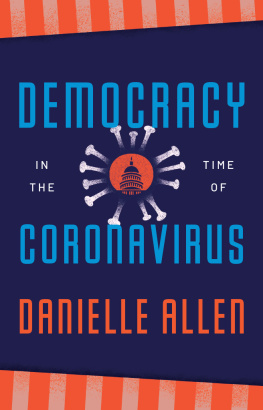

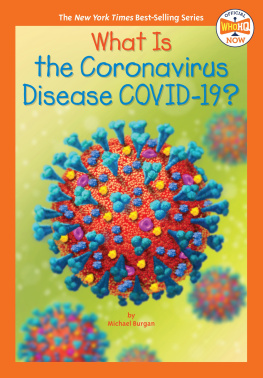
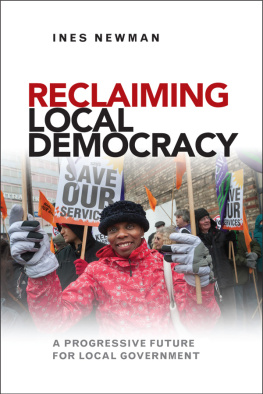
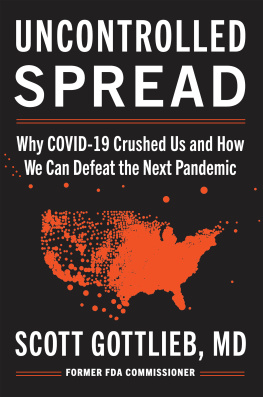
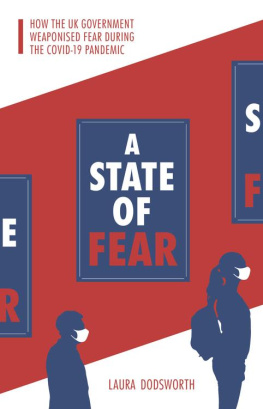
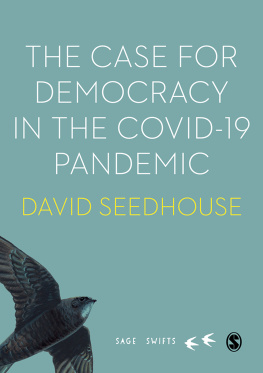
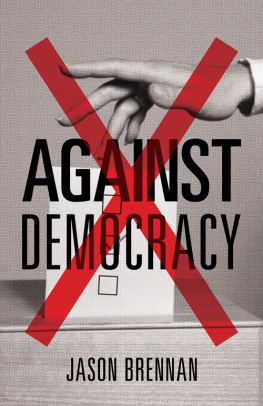
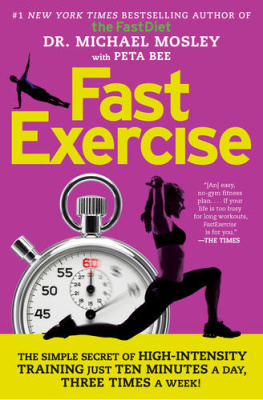
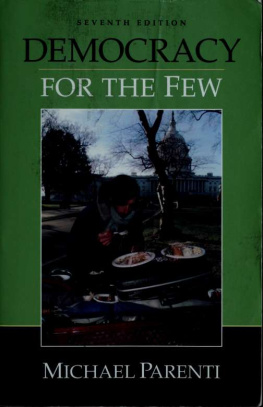


 This paper meets the requirements of ANSI / NISO Z39.48-1992 (Permanence of Paper).
This paper meets the requirements of ANSI / NISO Z39.48-1992 (Permanence of Paper).